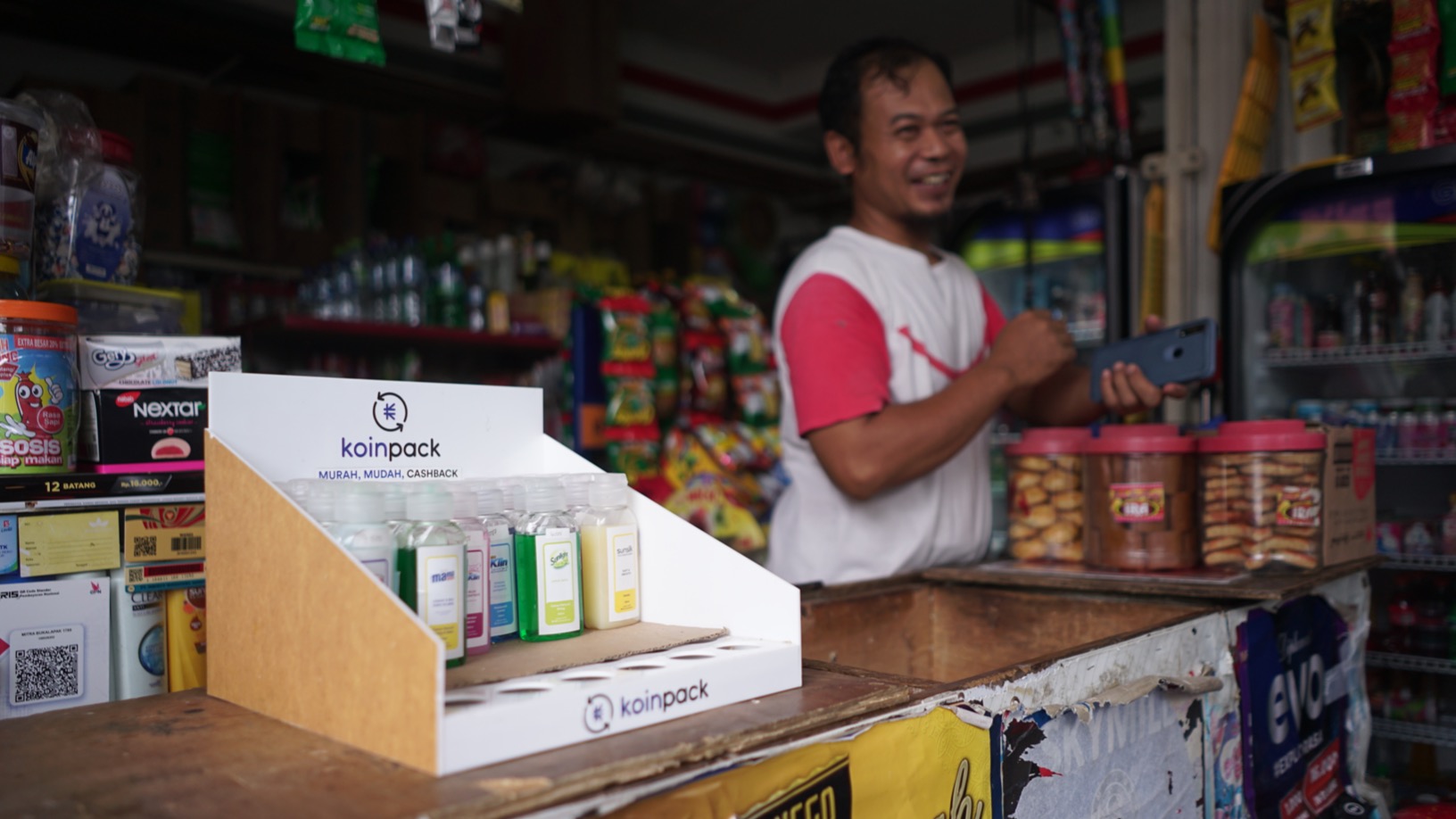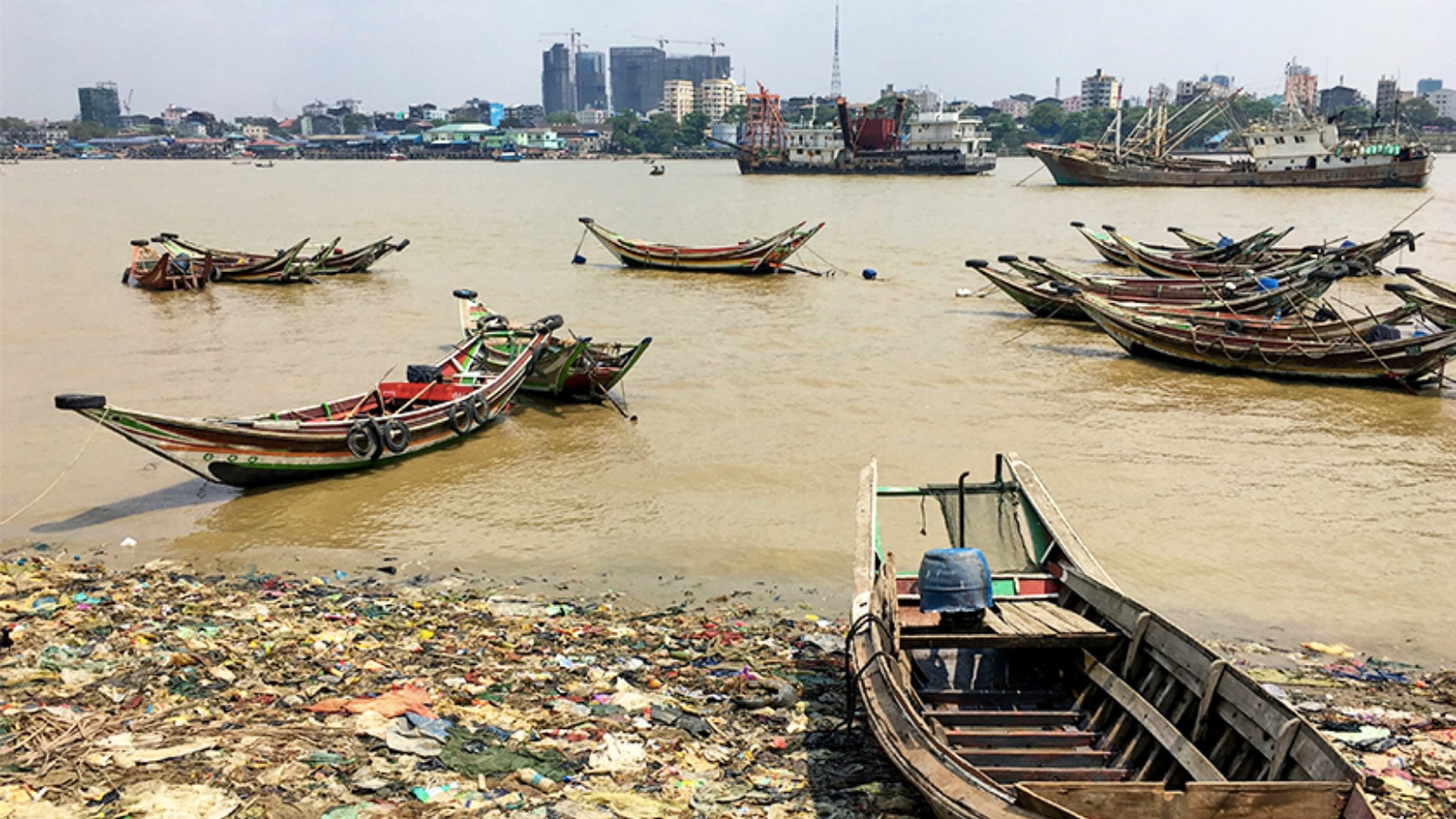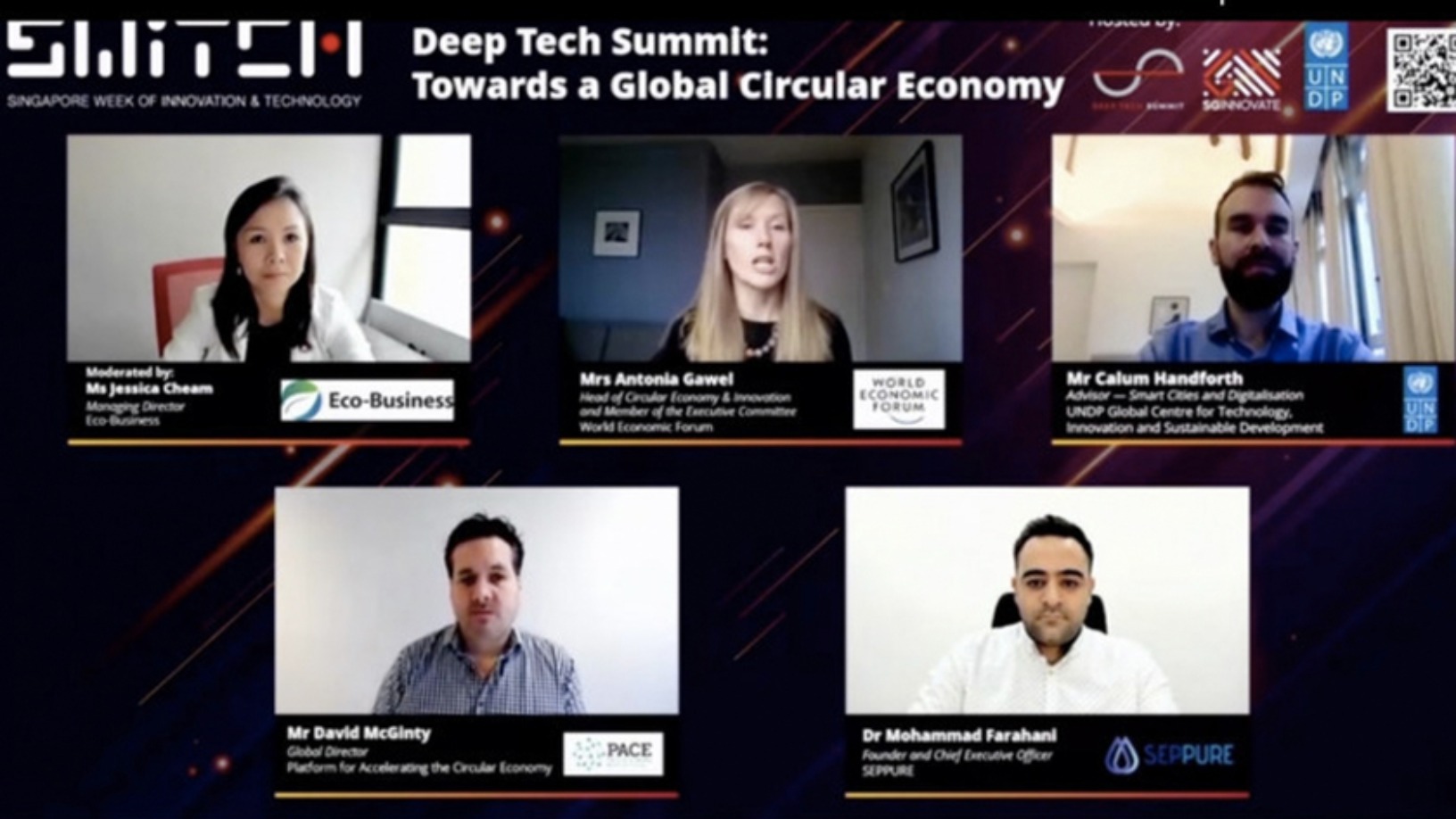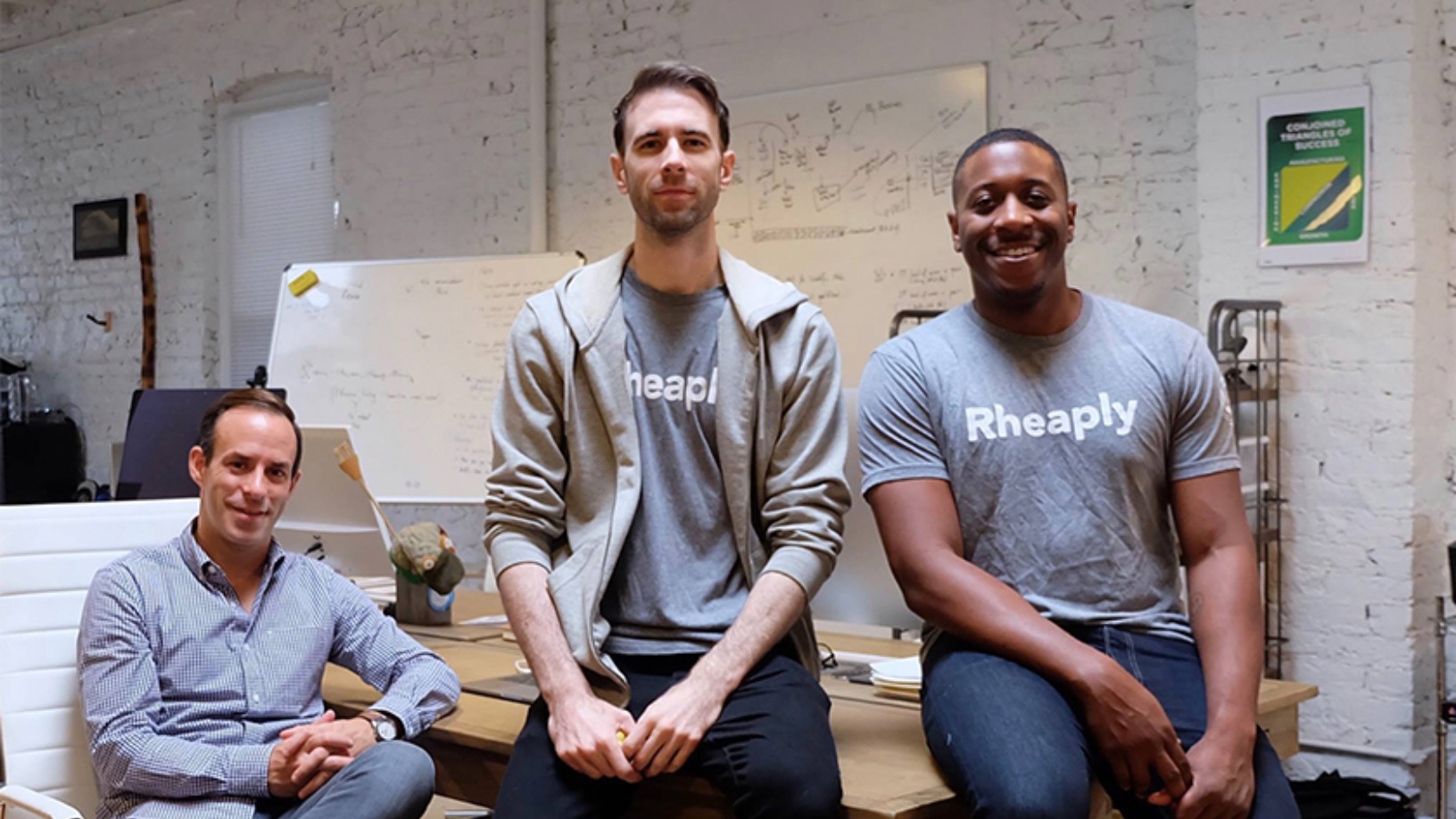Many types of plastic waste can be recycled, but what happens when you cannot recycle the waste? That’s the problem with plastic sachets, commonly used by FMCG manufacturers to sell products to lower-income households. Sachet waste polluting waterways and coastal areas is a major problem in many countries.
For Indonesian startup Koinpack, the solution is to avoid the use of sachets. Launched in early 2020 by global nonprofit venture studio Enviu, Koinpack buys products, such as detergents and shampoos in bulk from FMCG manufacturers and packages them into refillable bottles, which it sells through small neighborhood stores called “warungs,” as well as at “waste banks,” where recyclable waste can be exchanged for cash or goods.
Customers are encouraged to return the bottles with a discount for the products they buy when returning the bottles. Koinpack picks up the bottles free of charge from each warung to wash and refill to ensure that the bottles are reused and stay in circulation.
Bintang Ekananda, a venture builder at Enviu, told Compasslist in a recent interview that sachets are very difficult to recycle and easily slip through the waste treatment system. Each layer of the sachet needs to be separated, making the recycling process uneconomical. “Less than 9% of single-use plastics, including sachets, get recycled in Southeast Asia," Ekananda said.
Anne Poggenpohl, a venture builder at Enviu, who was also present in the interview, said that Southeast Asian countries generate 430bn sachets and other single-use plastic waste every year. “Since sachets have no value within the recycling industry, we urgently need to reduce the amount being disposed of,” she added.
Koinpack began its pilot projects in March 2020 in Jakarta. Since then, it has sold 1,500 bottles through eight waste banks and nine warungs to about 200 customers. It estimates these sales have helped prevent 16,000 sachets from becoming waste. Koinpack is now aiming to expand within the Greater Jakarta region with 1,000 points of sale distributing its products by the end of 2021, which it says will reduce sachet waste by 4m.
“We want to build up the network effect,” Poggenpohl said. Koinpack is now seeking early-stage funding in the range of $200,000–$250,000 for market expansion, research into more durable bottles and greater quality control of the refilling process.
New consumption model
Compared to products packaged in sachets, Koinpack’s repackaged products cost about 5% more. However, when a customer returns an old bottle and buys a new one, they will receive a discount on the purchase. A detergent product, Ekananda said, is priced at IDR 3,500 per 100ml bottle. If a customer returns the bottle, they will get a discount of IDR 1,250 for the next purchase. “Every 100ml bottle has the same cashback value of IDR 1,250, regardless of the brand and product type,” he added.
About half of Koinpack’s customers during its pilot projects were repeat customers. It also saw a bottle return rate of about 65%, suggesting that repeat customers are adapting to the new consumption model and making use of the discounts.
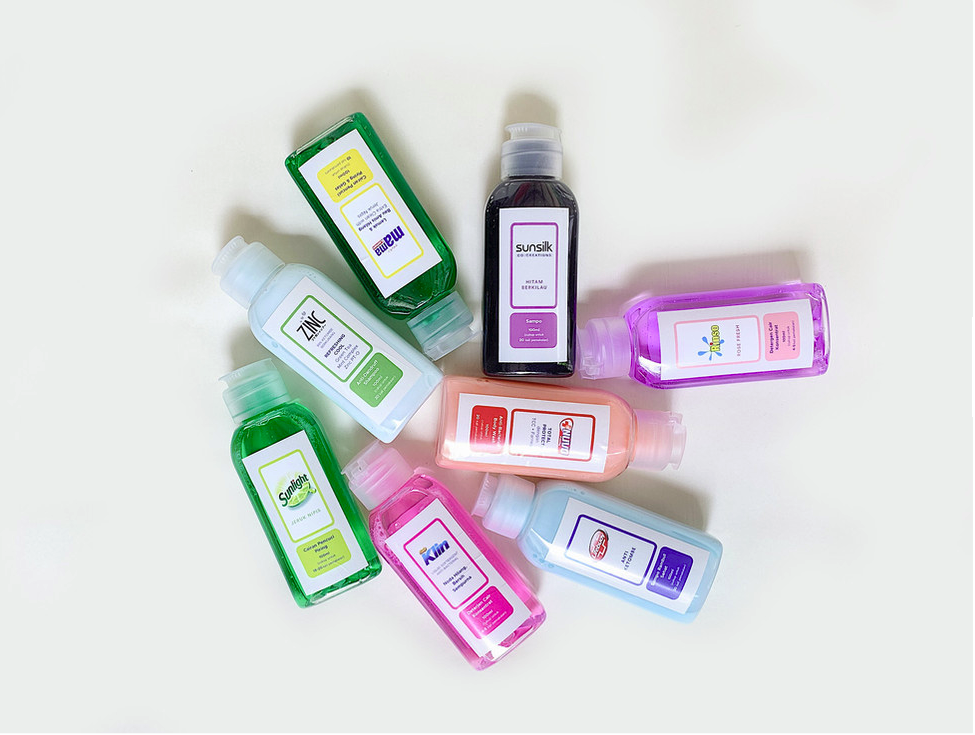
The discounts given to repeat customers who return bottles is an important part of customer education. “In our current model, the financial incentives are really the key part to getting people onboard,” Ekananda said. “For now, we don’t see an opportunity to remove the financial incentives, but it’s something we’ve already accounted for in the business model.”
To inform customers about Koinpack products and how the discount system works, Koinpack explains the system to warung store owners and provides advertising materials such as banners and price lists. It also provides digital marketing collateral such as text-message and WhatsApp status templates to help owners communicate with their community.
According to Ekananda, store owners like Koinpack’s small bottles as they can be stored easily. Koinpack picks up and delivers the bottles and also provides an app to help them re-order products and keep track of sales. “In terms of pricing, the customers really feel the savings they get when they return the bottles. They also like how they can control how much product they take out of the bottle and how it doesn’t leak as easily as sachets,” Ekananda said.
Partnerships the key
Partnerships with FMCG manufacturers are crucial to the success of Koinpack. It has partnered with P&G and Nestlé to package and distribute their products. “We’ve been working with FMCGs to test and prove our business model is viable," Ekananda said.
"We’re working closely with our FMCG partners to ensure that we get to a hygiene level that they can accept. Our partnerships with FMCGs are also important to develop an efficient logistics system,” he added.
The company is also working with plastics manufacturer ALPLA to produce recyclable bottles that can last about 50 refill cycles. “We want to make sure that our bottles are not only usable but also fully recyclable at the end of their lifespan,” he added. “We help our partners reach their sustainability goals, especially in terms of responsible packaging and plastic reduction.”
In future, Koinpack hopes to sell food products in refillable containers. Poggenpohl said the company is exploring the possibilities, but one product that stands out is instant coffee. “We’re always curious about which types of waste leaks into the environment most,” she said. “There’s a high volume of coffee sachet waste, so we’re exploring how we can make it work.”
Enviu’s Zero Waste Living Lab started Koinpack, along with several other ventures to reduce plastic waste in Indonesia. These startups include Qyos, which makes dispensers that refill detergent bottles, Econesia, a full-service drinking-water solution for hotels, schools, businesses and homes, and CupKita, a smart, reusable coffee-cup-service system.
“What Koinpack is tapping into is close to the current consumption behavior, where you buy a small package of detergent or shampoo, but with an added step of returning the old bottle,” Poggenpohl said.
